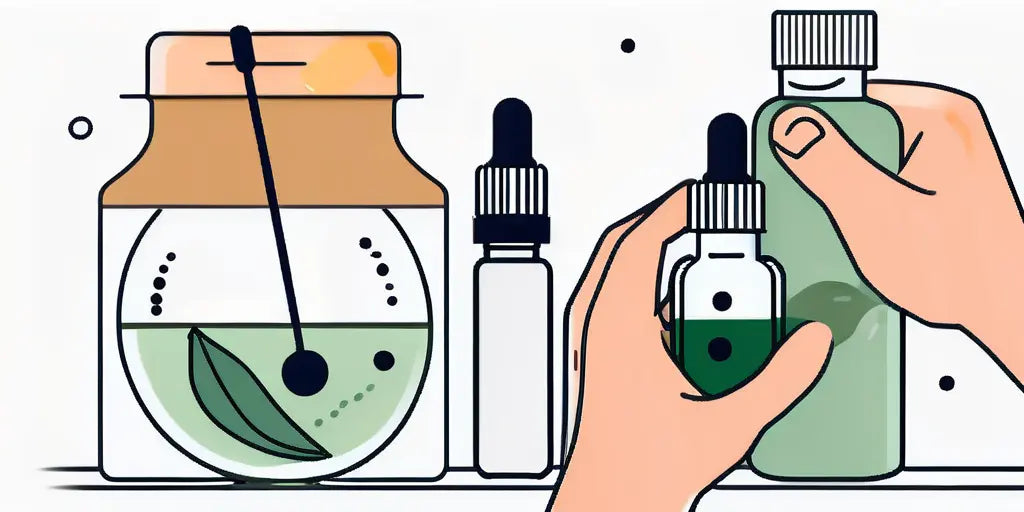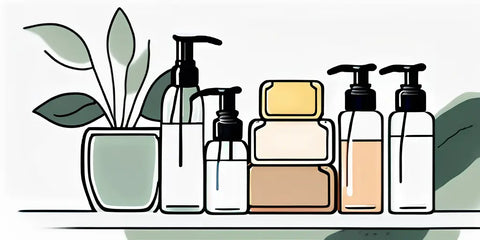Key Takeaways
- Pick essential oils that not only smell good but also have benefits for your skin, like Lavender for calming or Peppermint for refreshing effect
- Mix different oils together to create unique scents that match your preferences, whether it's a floral blend or a citrusy twist.
- Always dilute essential oils before using them on your skin to avoid irritation, and perform a patch test if you're unsure about allergies.
- Learn the steps for incorporating essential oils into your soap, from mixing them into the soap base to pouring and letting it set.
- Have fun making your own customized soaps and take pleasure in using them for your skincare routine or gifting to others.
Soap making is a popular hobby that allows you to create beautiful, customized soaps. One way to enhance your soap creations is by using essential oils. Essential oils not only add fragrance to your soap but also offer various benefits for the skin.
In this article, we will explore the benefits of using essential oils in soap making, how to choose the right oils for your recipes, a step-by-step guide on adding essential oils, and popular essential oil combinations, troubleshoot common issues, and answer frequently asked questions.
How to Choose the Right Essential Oils for Your Soap Recipes
When it comes to choosing the right essential oils for your soap recipes, there are several factors to consider such as.
- Fragrance of the soap
- Function of the soap
- Properties of the soap
- Potential side effects
Fragrance of the Soap
One of the most important aspects to think about is the scent profile you want for your soap.
The fragrance of the soap plays a significant role in how it is perceived and enjoyed by users.
Do you prefer a floral aroma that evokes a sense of tranquility and relaxation? Or perhaps you lean towards citrusy scents that invigorate and uplift the senses?
Alternatively, you might be drawn to herbal fragrances that create a refreshing and earthy ambiance.
Knowing your preferred scent profile will help you narrow down your choices and create a soap that appeals to your olfactory preferences.
Function of the Soap
In addition to the scent, it is crucial to consider the function of your soap.
Are you creating a gentle facial cleanser that focuses on nourishing and hydrating the skin? Or maybe you're crafting an energizing body soap that aims to invigorate and awaken the senses.
Understanding the purpose of your soap will guide you in selecting essential oils that align with your desired outcomes.
For instance, if you're aiming for a facial cleanser, you might want to choose essential oils known for their soothing and calming properties, such as lavender or chamomile.
On the other hand, if you're creating a body soap, you might opt for oils like peppermint or eucalyptus, which can provide a refreshing and revitalizing experience.
Once you have a general idea of the scent profile and function of your soap, it's time to delve deeper into the properties of each essential oil.
Properties of Soap
Every oil has its unique characteristics and benefits, making it essential to research and experiment with different options.
Some essential oils are better suited for dry skin, providing much-needed hydration and nourishment. Examples of these oils include jojoba oil, which closely resembles the skin's natural sebum, and rosehip oil, known for its moisturizing properties.
On the other hand, if you're looking to reduce inflammation or soothe irritated skin, oils like tea tree or chamomile can be excellent choices.
Potential Side Effects
While essential oils offer numerous benefits, it's crucial to be aware of potential side effects. Some oils, such as bergamot or lemon, can increase the skin's sensitivity to sunlight, a condition known as photosensitivity.
This means that if you use these oils in your soap, you must advise users to take precautions when exposed to the sun.
Additionally, certain essential oils may not be suitable for individuals with specific medical conditions or allergies, so it's always wise to consult with a healthcare professional if you have any concerns.
Natural Soap Making Basics
When it comes to making soap, there are three basic methods: cold process, hot process, and melt and pour. Each method has its unique advantages and disadvantages, and the choice of method will depend on the desired outcome.
Cold Process
Cold process soap making involves mixing oils and lye. The mixture is then left to cure for several weeks. This method produces a mild, gentle soap that is perfect for those with sensitive skin. It also allows for more creativity in terms of adding essential oils, fragrances, and colors.
Hot Process
Hot process soap making involves cooking the soap mixture in a crockpot or on the stove. This method produces a harder, more rustic soap that is perfect for those who prefer a more textured soap. It also allows for the addition of essential oils and fragrances.
Melt and Pour
Melt and pour soap making involves melting pre-made soap base and adding essential oils, fragrances, and colors.
This method is perfect for those who are new to soap making or who want to make soap quickly and easily. It also allows for more creativity in terms of adding essential oils, fragrances, and colors.
No matter which method you choose, it is important to use high-quality ingredients and to follow the instructions carefully. With a little practice and patience, anyone can make beautiful, natural soap at home.
Exploring Popular Essential Oil Combinations for Soap Making
Combining different essential oils can create unique and delightful scent profiles for your soap. Here are a few popular essential oil combinations to inspire your soap-making adventures:
- Lavender and chamomile for a calming and soothing scent.
- Lemon and peppermint for an invigorating and refreshing aroma.
- Orange, grapefruit, and bergamot for a citrusy and uplifting fragrance.
- Tea tree and eucalyptus for a cleansing and rejuvenating scent.
Feel free to experiment with different combinations to find your signature soap scent.
Consider Saponification Value of Essential Oils
When incorporating essential oils into soap, it is crucial to consider their saponification value. The saponification value indicates the amount of sodium hydroxide (lye) needed to completely convert oils into soap.
Different essential oils have varying saponification values, which affect the scent and properties of the soap. It is important to research and understand the saponification values of the essential oils you plan to use to achieve the desired outcome.
For instance, Lavender oil has a saponification value of 188, which means that it requires a moderate amount of lye to turn it into soap.
On the other hand, citrus essential oils such as lemon and orange have lower saponification values, ranging from 150-180. However, due to their lower saponification values, soap makers need to be cautious when using citrus oils.
Using too much lye can result in a soap that is too harsh and drying to the skin.
By carefully measuring and adjusting the amount of lye, soap makers can create a soap that retains the invigorating scent of citrus while still being gentle on the skin.
Step-by-Step Guide: Adding Essential Oils to Your Soap Batch

- Once you have chosen your essential oils, it's essential to measure them accurately. Use a dropper or a pipette to ensure precise measurements.
- When making soap, essential oils are typically added during the fragrance phase. This phase is when the soap mixture has reached the trace stage, meaning it has thickened enough to suspend additives.
- To add essential oils, start by gently stirring the soap mixture with a spoon or spatula.
- Add your measured essential oil drops and continue stirring until the scent is evenly distributed throughout the soap mixture.
- Be cautious not to over-stir, as excessive stirring can cause the soap to thicken too quickly, making it challenging to pour into molds.
- Pour the scented soap mixture into your chosen soap molds, ensuring an even distribution.
- Allow the soap to cure for the recommended time, typically around 4-6 weeks, before using or gifting.
Troubleshooting Common Issues When Using Essential Oils in Soap Making
While using essential oils in soap making can be rewarding, it's important to be aware of potential issues that may arise. Here are some common problems and their possible solutions:
- If the scent is too weak, try increasing the amount of essential oil used or choosing stronger oils.
- If the soap develops an unpleasant odor, it may be due to a reaction between the oils and other soap ingredients. Consider using fragrance-safe additives and properly storing your soap.
- If the essential oil discolors your soap, you can use colorants or choose different oils with less discoloration potential.
- If your soap becomes too soft or mushy, it may be caused by excessive oil usage. Adjust the oil-to-lye ratio in your recipe or consider using oils with a higher cleansing capability.
Remember, troubleshooting is part of the soap-making journey. Don't be discouraged by setbacks and continue honing your skills.
The Benefits of Using Essential Oils in Soap Making

Adding essential oils to your soap not only makes it smell amazing but also provides several benefits for your skin. Essential oils are extracted from plants and carry their natural properties.
When incorporated into soap, they can offer aromatherapy benefits and nourish the skin. Some essential oils have antiseptic, anti-inflammatory, or moisturizing properties, making them ideal for different skin concerns.
Lavender Oil
Lavender essential oil is known for its calming properties and can soothe dry or irritated skin. When added to soap, lavender essential oil not only provides a delightful floral scent but also helps to moisturize and soften the skin. Its gentle nature makes it suitable for all skin types, including sensitive skin.
Tea Tree Oil
Tea tree essential oil, on the other hand, has powerful antiseptic qualities, making it a popular choice for acne-prone or oily skin. When incorporated into soap, tea tree essential oil can help cleanse the skin, unclog pores, and prevent breakouts. Its refreshing scent also provides a rejuvenating experience during your daily skincare routine.
Citrusy Oils
Citrus oils like lemon or sweet orange can provide an invigorating scent and help brighten the skin.
Lemon Oil
Lemon essential oil is known for its astringent properties, which can help tighten and tone the skin. It also has a refreshing and uplifting aroma that can boost your mood and energy levels.
When used in soap, lemon essential oil can help remove excess oil and impurities, leaving your skin feeling fresh and revitalized.
Sweet Orange Oil
Sweet orange essential oil, on the other hand, is rich in vitamin C and antioxidants, making it beneficial for brightening and rejuvenating the skin. Its sweet and citrusy aroma can uplift your spirits and promote a sense of happiness.
When added to soap, sweet orange essential oil can help improve the appearance of dull or tired-looking skin, giving it a natural glow.
In addition to these specific benefits,
- Using essential oils in soap making allows you to customize your soap according to your preferences and needs. You can create unique blends by combining different essential oils to create a signature scent that suits your personality.
- Furthermore, using natural ingredients like essential oils in soap making is a more sustainable and eco-friendly choice. Unlike synthetic fragrances, essential oils are derived from plants and do not contribute to air pollution or harm the environment.
Frequently Asked Questions About Using Essential Oils in Soap Making
Can I mix different essential oils in one soap batch?
Yes, you can mix different essential oils to create unique scent blends. Just make sure to research the compatibility and recommended usage rates of each oil.
Are essential oils safe to use in soap?
When used in appropriate concentrations, essential oils are generally safe for use in soap. However, some essential oils may cause skin irritation or sensitization in some individuals. Patch testing is recommended before using a new essential oil.
How long does the scent of essential oils last in soap?
The longevity of the scent varies depending on the oils used, their quality, and the curing time of the soap. Generally, well-cured soaps can retain their fragrance for several months.
Can I use synthetic fragrance oils instead of essential oils?
Yes, synthetic fragrance oils can be used in soap making. However, they may not provide the same natural benefits as essential oils.
Conclusion
Using essential oils in soap making can elevate your creations and provide various benefits for the skin. Whether you desire a relaxing lavender-scented soap or an energizing citrus blend, aroma farmacy offers a range of pure essential oils
Remember to choose the right oils for your needs, follow the correct addition process, and experiment with different combinations.
Embrace the troubleshooting process and enjoy the journey of creating beautifully scented soaps.

